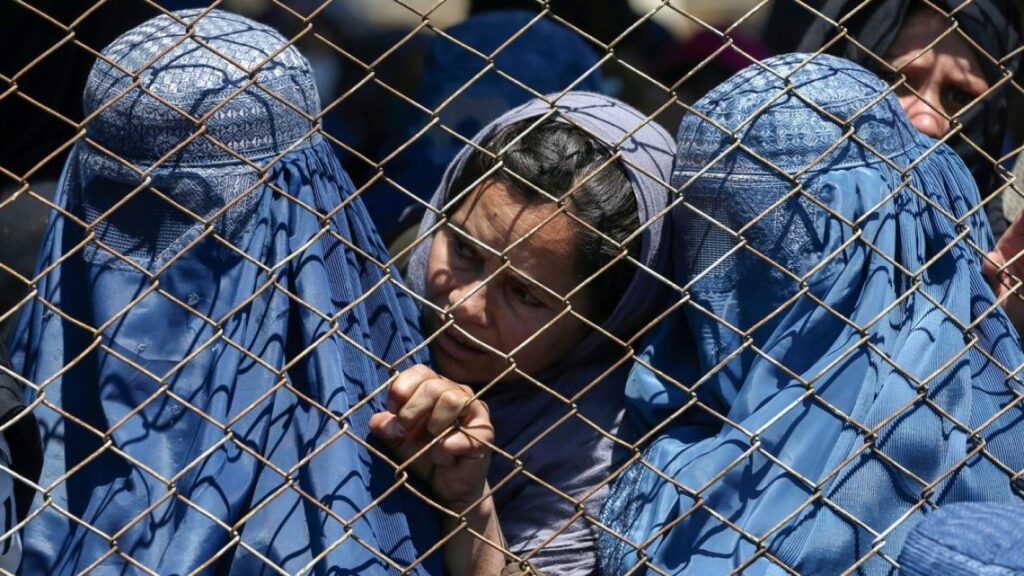I write of the days of the fall of Kabul and Panjshir—days I never dared to speak about. But they are etched into every fibre of my being. I wasn’t in Afghanistan then, yet the sorrow that swept across the land was so loud, it crossed every border and pierced every soul.
It was still early in the collapse. I remember thinking, “This must be a joke.” I didn’t want to believe the reports. Or perhaps, I hoped that if they were true, they marked the triumph of good over evil. But province after province was falling—and I seemed to be waiting for a miracle. I wanted to close my eyes, fall into a deep sleep, and wake up when this nightmare was over. A moment when fear had retreated, when our hearts no longer trembled.
Back then, I didn’t cry. No, something called hope kept me standing. It gave me the strength to carry on. But when I heard Kabul had fallen, it was as though the sky turned dark. Though I never liked the republic and was never satisfied with it, I believed the Taliban were the worst calamity that could befall our land. When Kabul fell, the last bricks of hope within me began to crumble. I was left helpless, clinging to the faintest dream that something—an uprising, a resistance—might stop this tragedy.
The Taliban had reached the gates of Kabul. The president had fled. Some people fled to the airport, desperate and displaced. Others locked themselves in their homes, paralysed by fear. And I, on the other side of the border, still believed in Panjshir—the last heartbeat of resistance. The wild and unyielding Panjshir.
Those nights, I’d go to bed haunted by dreams of terrifying men with bulging bellies and beards down to their stomachs. I don’t know why they frightened me so deeply, but I knew who they were. They were the Taliban. I’d wake up in panic and ask myself: How must those living under them feel? Are we really back at the starting line? Were the past two decades just an illusion?
I couldn’t sleep. My heart beat faster than ever before. Still, I held onto Panjshir—our final sliver of defiance. Then, just one week after Kabul’s fall, the Taliban marched toward Panjshir and occupied it. That week marked the darkest days and nights of my life. It felt like the last of my strength was draining, the final flame of hope flickering out.
The air was filled with talk of war in Panjshir. My hands could no longer work. I still remember that night—I couldn’t even bring myself to wash the dishes. A tightness gripped my throat. Standing at the sink, I burst into tears. Silent, uncontrollable tears. I cried until deep into the night, wondering, What a miserable generation we are. How much sorrow have we endured in our youth? Why must the young people of our country weep for their homeland while others sleep peacefully?
That night, with a thousand fears in my heart and two tear-filled eyes, I went to bed hoping to wake to a better tomorrow—a dawn where Afghanistan could still breathe.
But I didn’t know those were the good days.
The next morning, the sun rose, but the light hadn’t reached our land. Hesitantly, I picked up my phone and scanned the news. And there it was—everywhere: Panjshir had fallen. The Taliban had entered the valley of resistance. That moment shattered the last brick of hope within me. Afghanistan had turned into an unhealed wound, a silent cry stuck in our throats, a nightmare too unreal to accept. And though I wasn’t there, I felt the same silence wrap itself around me. Heavy. Suffocating.
Everything started changing at breakneck speed. The colours women once wore began to fade. The gates of girls’ schools closed. Their voices—poetry, songs, dreams—were silenced. Decree after decree. Injustice after injustice. Killing after killing. And always, the loud cry of ignorance. The Taliban’s regime brought devastation once again—and as always, it was the girls, the purest and most innocent, who paid the highest price. The girls who had dreamed of a future were now denied even the most basic rights.
Four years have passed.
Schools remain closed for girls. They are still fighting for their right to education, for their very existence. Those who once hoped to graduate, to pursue careers, to live with dignity—perhaps they are now mothers. Educated mothers with shattered dreams. The same hands that once held pens now rock cradles. The girls who once fretted about homework now carry the heavy sorrow of being told their dreams are shameful.
In that land, a woman’s voice is still treated as a source of shame. Her presence, seen as corruption. And yet, they resist. Every day, they resist.
Until the day comes when true freedom returns—and a woman stands tall on the highest peak of the Hindu Kush, singing the anthem of liberation for a nation that has suffered too long.





